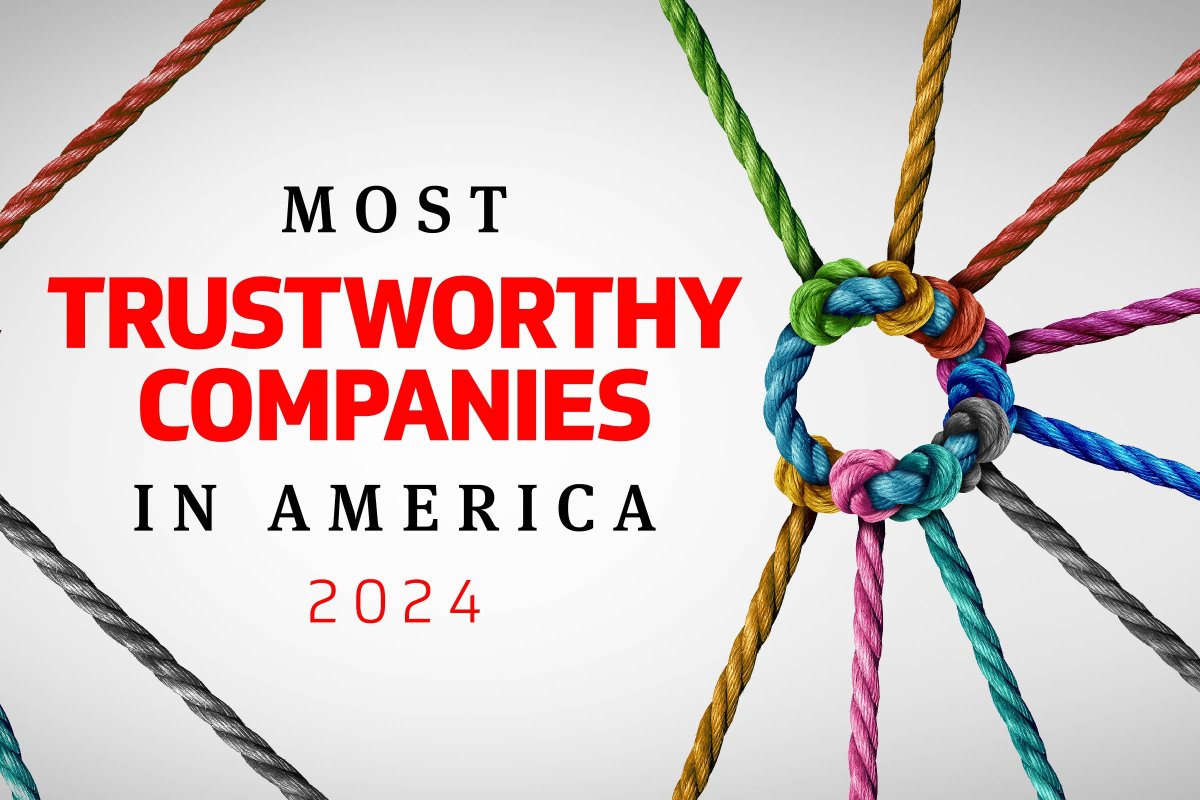Trust is a delicate but essential part of any relationship. It's difficult to earn and easy to lose. In the corporate world, maintaining trust among customers, employees and investors is paramount for success in a crowded marketplace.
To determine where these key players put their trust, Newsweek has published its third annual listing of the Most Trustworthy Companies in America, in collaboration with data firm Statista.
"The ranking wants to provide guidance to consumers, investors and employees and to highlight the companies that are most trusted in the United States," Eike Röver, an analyst for Statista, told Newsweek over email.
To be eligible for the list, the 700 companies included on the ranking needed to have headquarters in the U.S. and have revenue over $500 million. They could be public or private companies.
Some of those companies include Bose, Goodyear, Capital One, Hasbro, Warby Parker, Hershey, Whole Foods, DreamsWorks Animation, Barnes & Noble, Walmart, IBM, Tiffany & Co., Hilton and Pizza Hut.

The ranking was based on a survey of 25,000 U.S. residents, as well as research into each company's reputation online.
For the survey, respondents were shown a random selection of relevant companies and rated up to six companies they knew well. In total, 97,000 evaluations were submitted.
The evaluation of each company was determined through the lens of a potential customer, employee or investor. In the end, the respondents were asked to state how they are actually connected to the evaluated companies. Responses from actual customers, investors and/or employees were given a higher weight.
Röver said Statista included multiple viewpoints for this ranking to reflect how various stakeholders have varying levels of trust in a company.
"Trust can basically be understood as an attitude of a person or a group toward another person or institution," Röver said. "Trust can have several characteristics and be viewed from different perspectives. Behaviors and attitudes can play a role, as can the situational context in which trust is or is not expressed."
Participants were asked to determine their level of trust in a company based on certain criteria, which varied depending upon their perspective. For each of the three points of view, different questions were asked.
From the viewpoint of a potential customer, that criteria included fair treatment, trust in products or services, complaint management, advertising and communication claims.
Would-be investors evaluated companies based on long-term investment prospects, company values and leadership.
For possible employees, their trust in a company was evaluated through the lens of fair treatment and payment, opportunities for career development and the overall attractiveness as an employer.
On average, Röver said respondents rated companies best from the customer perspective and worst from the employee perspective.
After the survey was conducted, Statista set out to determine the reputation of these companies through "social listening." This process involved an aggregation of online mentions and sentiment to identify and assess what is being said about a company on the internet. Any company that was involved in a recent scandal or lawsuit relevant to a dimension of trust was excluded from the analysis, Statista said.
The analysis scoured web articles, news forums, social networks, comment sections and press releases for the top 1,000 companies from the survey with the best ratings.
Over a period of five months starting in September of last year, 532,000 online mentions were collected. Statista used text analysis and computational linguistics to classify online mentions of each company as "positive," "neutral" or "negative." The total social listening score was created by comparing the number of positive and neutral mentions to the total number of mentions.
"Social listening is a powerful empirical tool, but it only reflects the opinion of a relatively short period," Röver said. "Trust, however, is built over a longer period of time, as indicated by the survey participants through their evaluations."
Therefore, the social listening analysis made up 20 percent of a company's total score, and the survey generated 80 percent.
When considering the results of the survey, the responses were weighed differently because general trust is more likely to be built through the public perception of a company rather than the internal opinion of the employees, Röver explained. For this reason, customer and investor trust were each responsible for 40 percent of the survey's share of the total score, while employee trust contributed the remaining 20 percent.
Among the 700 companies featured on the ranking within 23 industries, retail and food & beverage were the industries with the greatest number of companies included, with 65 and 50 companies represented, respectively.
Since trust is a precious commodity for companies that can attract new customers and retain loyal ones, consumers should be thoughtful about where they place their confidence.
"By showing trust, you increase your own vulnerability, as you have no control over the organization or company," Röver said. "Trust is therefore an extremely valuable asset in our society that should not be mistreated by companies."
Uncommon Knowledge
Newsweek is committed to challenging conventional wisdom and finding connections in the search for common ground.
Newsweek is committed to challenging conventional wisdom and finding connections in the search for common ground.
About the writer
Lauren Giella is a Newsweek National reporter based in New York. Her focus is reporting on breaking and trending U.S. ... Read more
To read how Newsweek uses AI as a newsroom tool, Click here.








